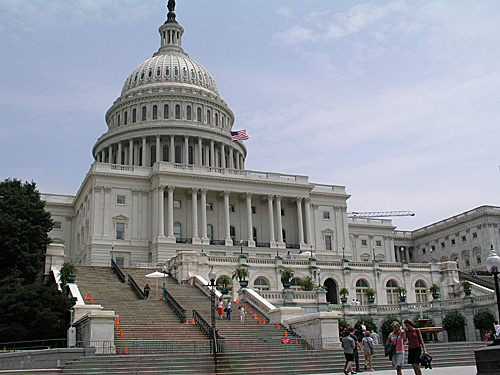
US Senate Committee to continue postal reform debate next week

The US Senate will continue attempts to pass an important postal reform bill out of committee next week, having failed to do so on Tuesday. A number of contentious issues delayed completion of the bill mark-up this week, including debate on proposals to raise postal rates significantly to help with the Postal Service’s financial position.
The Committee leaders are proposing to make a temporary surcharge – representing a three-times-inflation rate increase – on postal rates permanent and change the usual inflation-based price cap to inflation plus 1%.
The bill would also look to give greater powers to the USPS board of governors to set prices from 2016, taking away powers from the Postal Regulatory Commission.
However, some Democrats on the Committee objected to the USPS as a monopoly service being able to set its own prices without strong oversight. The Committee chairman Tom Carper offered a compromise during Tuesday’s hearing, but this required aides to draw up the compromise in writing.
The issue of the temporary surcharge allowed by the regulators for USPS to recoup losses caused by the 2007-09 is currently the subject of a lawsuit by major postal customer groups. These groups have said the 6% pay increase will see businesses reducing their mail volume which will mean USPS volumes decline further.
In the Senate this week, the Republican Ranking Member of the Committee, Tom Coburn, said he believed significant postal rate increases were now “inevitable”.
But he suggested that the control for Postal Service prices was now more likely to be competitive delivery channels than regulators. If prices rise too much, they can abandon the mail altogether, he said.
“Mailers are going to be confronted, in a declining industry, with one of two things: increased pricing, which is inevitable, or going to another route to deliver their products,” said Coburn, the Senator for Oklahoma.
“The post office on parcels is competing with FedEx and UPS. They have no limits on what their price increases are. And they both raised their prices last year more than what the Postal Service got. And yet we’re tying the Postal Service that’s not in a monopoly on parcels to this same system that says you can raise it at CPI plus one — when FedEx last year did two or three times that.”
Delivery frequency
Among the debates on Tuesday, the Committee discussed whether to allow USPS to move from six-day-a-week mail delivery to a five-day model, something the Postal Service believes would save $2bn a year in operating costs.
The central proposal for the Senate bill is to allow USPS to move to five-day delivery when mail volumes fall below 140bn pieces over four consecutive quarters.
However, some Republicans warned that this threshold could take until 2018 to materialize, and that the cash-strapped Postal Service needed to cut Saturday mail delivery now.
Senator John McCain said he was “convinced” the American people would support a move to five-day delivery.
He said: “We here have changed how we communicate, and I think it’s pretty obvious the impact that this has had on the Postal Service, and the physical condition which is unsustainable at this time.”
McCain failed to get his amendment to allow a more immediate move to five-day delivery through.
Carper explained that in seeking a new volume-based trigger for moving to five-day-a-week delivery, he believed USPS needed more incentive to encourage mail volumes.
“We don’t incentivise anybody in the Postal Service to work any harder, to work any more creatively, to sell harder, if we simply say you can go from six to five-days a week in a year,” he said.
Tuesday’s meeting also saw provisions added to the bill proposals to prevent closure of post offices, to urge USPS to use more alternative fuels in its transport vehicles, and a measure to ease some Congressional oversight of postal activity.













